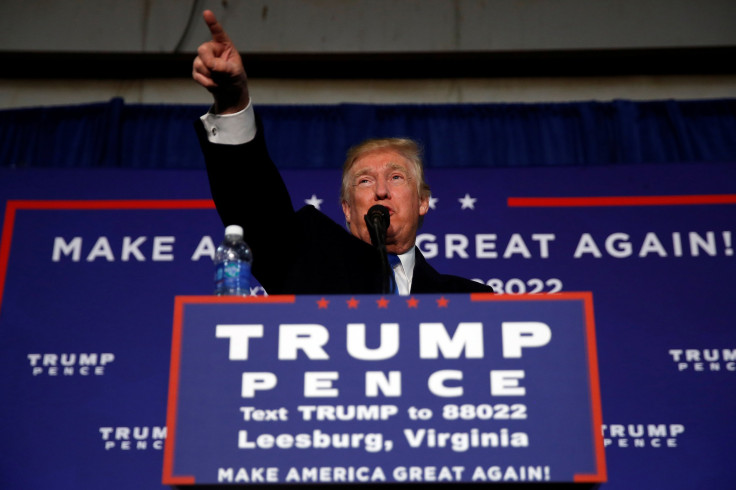Donald Trump Live Stream: Watch The Final Rallies Of The Republican's Campaign

After a year of campaigning in what has become one of the most contentious and vicious presidential elections in modern history, Republican nominee Donald Trump was scheduled to hold his final rally before Election Day Monday night in Grand Rapids Michigan.
The campaign plans to end a busy Monday when he was scheduled to speak in Florida, North Carolina, Pennsylvania and New Hampshire. The Grand Rapids rally, set to be held at 11 p.m. at the DeVos Place, marks the fifth state of the day. Watch Trump live Monday here.
<iframe width="560" height="315" src="https://www.youtube.com/embed/kojv8MHjo78" frameborder="0" allowfullscreen></iframe>
Indiana Gov. Mike Pence, Trump’s running mate, was set to join him at the final event, which occurs just eight hours before polls open in the state.
The locations of Trump’s final rallies show where the candidate hopes to break down Hillary Clinton’s so-called “firewall” in the Electoral College to take the presidency. While President Barack Obama beat his 2012 challenger in the state by nearly 10 percentage points, Clinton lost the state to her Democratic primary challenger Vermont Sen. Bernie Sanders earlier this year and has seen tighter polling in the state than the results four years ago. Even so, averages of polls conducted by Real Clear Politics (RCP) didn’t show a particularly close race there Monday morning, with Clinton beating the businessman by five points.
Trump isn’t alone in visiting the state Monday. Clinton was also scheduled for an event earlier in the day in Allendale and Obama was scheduled to speak in Ann Arbor.
Trump’s potential path to victory was narrow, projections from FiveThirtyEight, which has been more bullish for Trump than other political forecasting models this year, showed Monday. In order to beat Clinton, the businessman would likely need to win Ohio, Florida, North Carolina, Nevada and New Hampshire, unless he pulls off an upset in Michigan, Colorado or Pennsylvania (and even then he would need to win a couple of those five states listed earlier).
In virtually all of those states, the candidates come within 3 percent of one another in RCP averages.
© Copyright IBTimes 2025. All rights reserved.






















